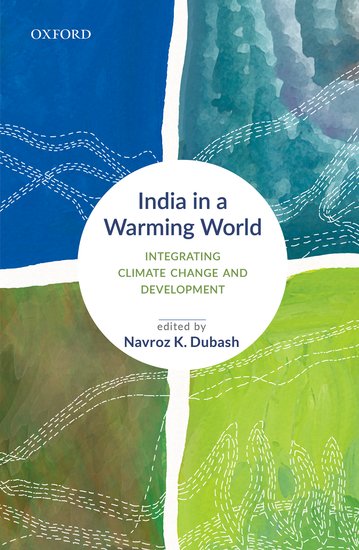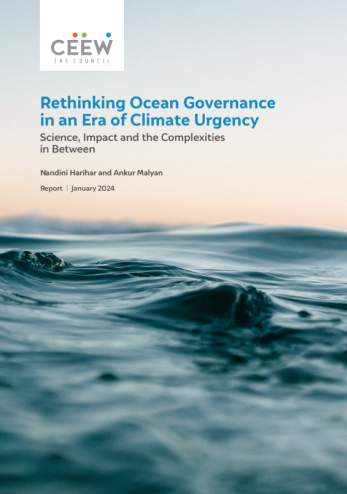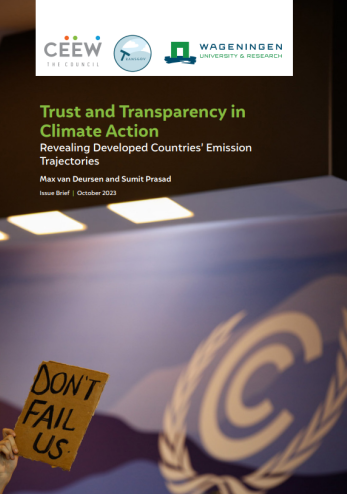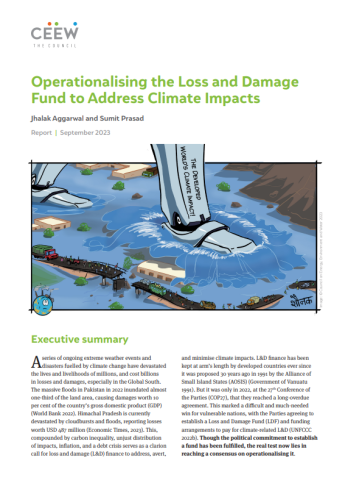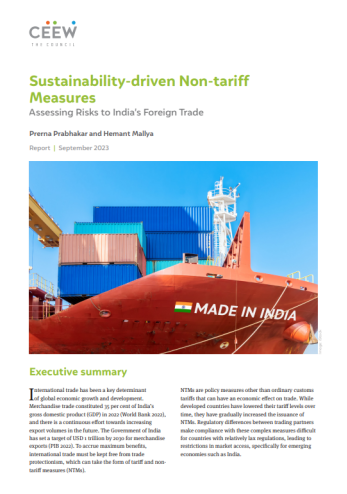Book Chapter
Making Sense on Its Own Terms
India in the HFC and Aviation Negotiations
Arunabha Ghosh
December 2019 | International Cooperation
Suggested citation: Ghosh, Arunabha. 2019. “Making Sense on Its Own Terms: India in the HFC and Aviation Negotiations” in India in a Warming World: Integrating Climate Change and Development, edited by Navroz Dubash. Oxford University Press, 230-249.
Overview
This book chapter examines India’s engagement with two recent deals related to climate change under the United Nations Framework Convention on Climate Change (UNFCCC). The two deals in focus are: (i) the Montreal Protocol Amendment for a global phase down of Hydrofluorocarbons (HFCs) and (ii) the International Civil Aviation Organisation (ICAO) agreement to reduce aviation emissions. Further, it highlights domestic factors that lead to a shift in India’s position from a point of uncertainty to acceptance and focuses on three key questions - (i) why did the deals succeed in 2016 after many failed attempts? (ii) what compromises were struck? (ii) how did India win or lose? The chapter discusses points of contestation between negotiating parties. It provides an in-country analysis of the science, the technological alternatives and the interest of varied groups that lead to a more proactive rather than defensive approach to the HFC and aviation deals.
Key Highlights
Montreal Protocol:
- In July 2009, at the Montreal Protocol’s annual meeting, many developing countries opposed the proposal of HFC emissions reductions
- India wanted to first resolve the existing issues of phasing out hydrochlorofluorocarbons (HCFC)
- Later, market conditions within and outside the country changed as Indian firms started undertaking research and development
- In 2016, a study estimated the cost of transitions in India to be 12 billion if it froze HFCs after 2030 and 34 billion with an earlier freeze date
- After the in-country HFC emissions scenarios, India submitted a proposal to amend the Montreal Protocol
- While for most developing countries, the baseline for freezing HCF was set as 2024, India secured a later baseline of 2028.
- India secured differentiation with China which was projected to witness rapid emissions during 2015-30 since China’s HFC output is much higher
- India demonstrated willingness to be a part of the multilateral deal but secured a differentiated outcome
ICAO Aviation Emissions:
- Owing to the rapid growth in emissions, the EU included aviation emissions in its Emissions Trading Scheme. However, it exempted airlines from countries with ‘equivalent measures’
- There was strong pushback from developed and developing countries as it violated the UNFCCC principle of common but differentiated responsibilities (CBDR)
- In September 2013, the ICAO Assembly decided to develop a global market-based measures (GMBM) scheme to offset aviation emissions
- The share of Indian operators in international passenger traffic increased from 29 per cent to 38 per cent during 2004-16
- India’s revenue tonne kilometres (RTKs) were estimated to rise to 19.3 billion around 2030 and only to 10 billion in 2020. If the GMBM capped RTKs in 2020, India would be offsetting 10 billion RTKs annually
- By making air travel more expensive, the GMBM would make it harder for India’s National Civil Aviation Policy to reach its targets
- There were concerns about maintaining differentiation between developed and developing countries as India would witness significant growth in the aviation industry
- India along with China and Brazil demanded autonomy to set criteria on eligibility of emissions units. India also argued for a greater balance between offsets and other approaches
- The final GMBM deal does not focus on actual emissions but prioritised offsets and shifted the burden to consumers
- Unlike the Kigali Amendment, there was no differentiation between developed and emerging economies, or among developing countries
- The GMBM becomes mandatory for all countries in 2027. The shift from a ‘sectoral’ approach to ‘individual offsetting’ absolves airline operators in developed countries from historical responsibility and lays disproportionate burden on emerging economies
While for most developing countries, the baseline for freezing HCF was set as 2024, India secured a later baseline of 2028. India demonstrated willingness to be a part of the multilateral deal but secured a differentiated outcome.




